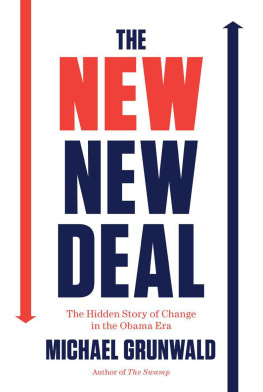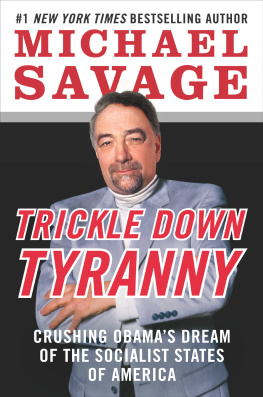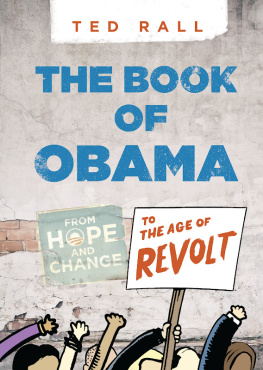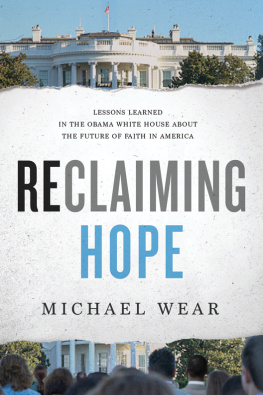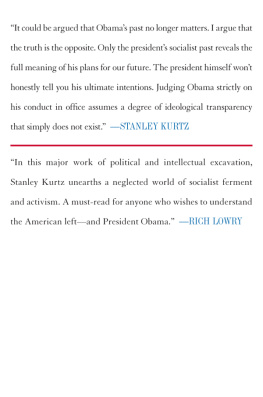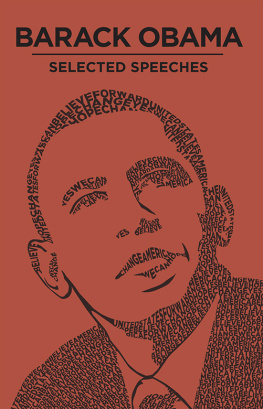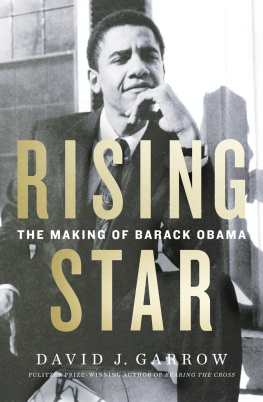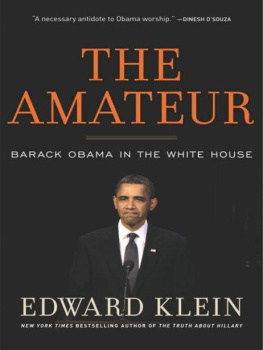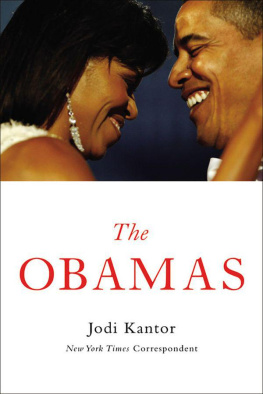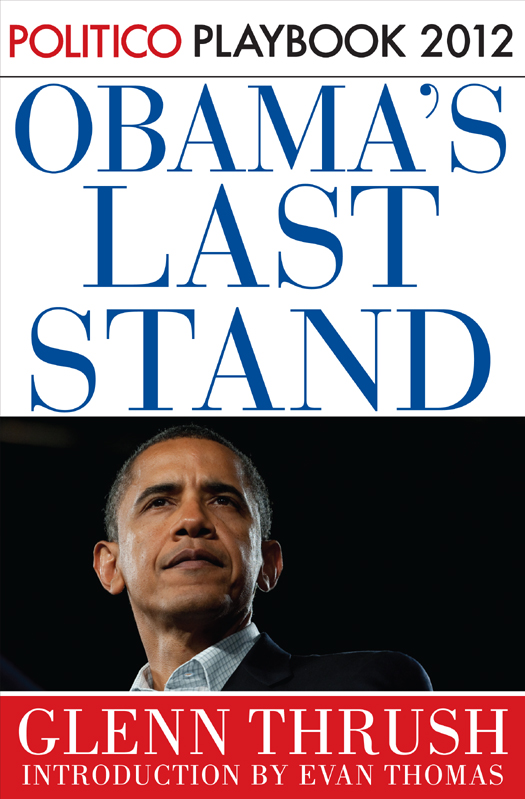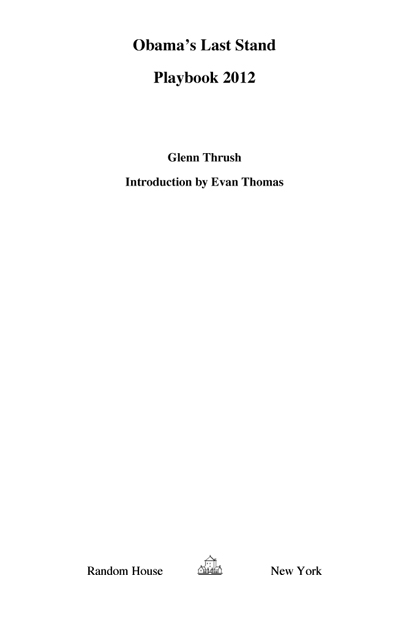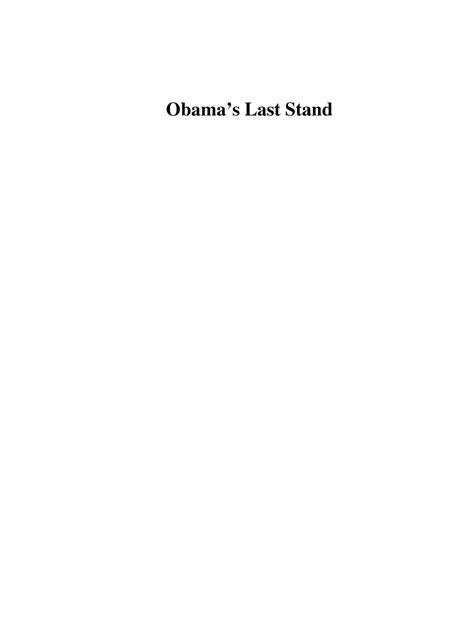A Random House eBook Original
Copyright 2012 by POLITICO LLC
All rights reserved.
Published in the United States by Random House, an imprint of The Random House Publishing Group, a division of Random House, Inc., New York.
R ANDOM H OUSE and colophon are registered trademarks of Random House, Inc.
eISBN: 978-0-679-64509-2
Cover design: Flamur Tonuzi
Cover photograph: Saul Loeb/AFP/Getty Images
www.atrandom.com
Cover design: Flamur Tonuzi
Cover photograph: Saul Loeb/AFP/Getty Images
v3.1_r1
Contents
Introduction
Evan Thomas
Over a half century ago, in a slower and more civil age, President Dwight Eisenhower barely campaigned for reelection. During the fall of 1956, Ike gave no more than a dozen campaign speeches, all high-minded stuff about peace and prosperity. He left it to his vice president, Richard Nixon, to attack the Democratic nominee, Adlai Stevenson, but even Nixons rhetoric was tame in comparison to the vitriol of the modern campaign trail.
While seeking a second term, President Eisenhower was not expected to get down in the trenches. He thought that partisan campaigning demeaned the presidency, and he knew that most voters wanted the president to stay above the fray. Eisenhower was supposed to concentrate on the big issuesstanding up to the communist threat, building an interstate highway system, nurturing the worlds biggest and most robust economy. Eisenhower was not afraid to call for sacrifice, a forbidden word in the poll-driven, consultant-dominated politics of today.
In 2012 the political stage seems so much smaller than it did during the Cold War era. The disputes seem pettier and more evanescent. America is not nearly so self-confident as a nation, and politics reflects the sour, sometimes nasty quality of public debate. Taking a truly bold stand to restore American greatness does not seem to be within the power or vision of Barack Obama or Mitt Romney. Neither candidate has offered a plan to tame the looming national debt by raising taxes or cutting entitlements, or to rebuild Americas infrastructure, or to reform political corruption by getting rid of loopholes and special favors for interest groups. Instead, Obama and Romney slam each other and allow their campaigns to run negative ads that are often, at best, half-truths.
Obamas campaign seems unambitious and uninspired for a man who won the presidency four years ago by promising hope and change. Obama was not insincere in 2008; he is the sort of man who dreams of a better world. Indeed, he is sometimes regarded as too dreamy, off in the clouds, aloof from the tug and pull of political life.
Obama is fiercely competitive. He is not the sort of president who thinks, Well, I did my best. I can do no better. He wants victory, and he is willing to play hard and rough to stay in the Oval Office for four more years.
Earlier Obama biographers, including David Maraniss, David Remnick, and Jonathan Alter, have discerned the psychological roots of Obamas drive. Indeed, Obama himself revealed them in Dreams from My Father: the fatherless boy competing with the ghost of a man who was never there for him. Throughout his youth and young adulthood, Obama struggled with loneliness and a sense of dislocation, of not quite belonging. He was trying to fit in while just as earnestly trying to maintain his independencetrying to be one of the guys, but also exceptional.
The way for an outsider to be an insider was to win. Obamas ambition knew few boundaries. He saw early success: as the first black editor of the Harvard Law Review who climbed to the tip-top of the meritocratic elite. Elected to the U.S. Senate at the age of forty-three, he was immediately recognized as a contender for the ultimate political prize. Having attained it, Obama, unsurprisingly, is damned if he is going to give it up.
Competitiveness is a presidential trait. Even the loftiest statesmen in the Oval Office have kept an eye on the ballot box. It is one of the redeeming qualities of American political life: you have to earn election by putting yourself before the people. Dwight Eisenhower did not run very hard for reelection in 1956; for one thing, he was busy trying to avoid a nuclear confrontation over twin crises in Hungary and the Suez Canal. But that doesnt mean that on election night he wasnt fiercely determined to win big. At noon on Election Day, Eisenhower had told the British prime minister, Anthony Eden, I dont give a damn how the election goes. He was feigning indifference. That night, as Ike waited for the state-by-state returns, he said to his speechwriter, Emmet Hughes, When I get in a battle, I just want to win the whole thing. Hearing that he was ahead by a landslide, Eisenhower compared himself to Admiral Lord Horatio Nelson, who, as he lay dying after his triumph at the Battle of Trafalgar, asked if there were any French ships left that had not sunk or surrendered. Eisenhower wanted to win every state. He ultimately took forty-one of forty-eight. Obama would settle for a narrower margin of victory. But he is no less determined.
This is the third installment of POLITICOs eBook on the 2012 election; the first two covered Romney and the race for the GOP nomination, and a fourth, to be published after the election, will take an inside look at the fall campaign.
Barack Obama had just arrived for a fund-raiser at a hotel in Coral Gables, Florida, a soaring sandstone pile of Roaring Twenties opulence that had once attracted the likes of Bing Crosby, Al Capone, and FDR.
The date was February 23, 2012, and Obama was in town to collect $4 million at a trio of big-money events. Sprung from the Oval Office, out on the trail, he was in a lighthearted, fighting mood.
A few weeks earlier the GOP primary had rolled out of town, and to Obama the resultsa decisive win for Mitt Romneymattered less than the relentless Republican attacks on his record. He hated being on the sidelines.
Peering into the sea of faces, Obama spied an old friend, a local Republican activist.
The woman, Obama knew, was close to Floridas charismatic junior senator, Marco Rubio, at the time considered to be the most dangerous potential No. 2 on the GOP ticket in November.
The incumbent flashed the toothy, expansive grin he uses to defuse conflict, deliver a zinger, or issue a friendly warning.
So, is your boy going to go for it? Obama asked, loud enough for someone nearby to hear.
The woman certainly wasnt expecting this sort of welcome. But she had seen this side of Obama before, the puckish trash-talkernot the professor who delivered high-minded lectures to eye-rolling senators.
I dont know. It could happen, the woman said with a laugh.
Obamas smile widened. Eyes twinkled and narrowed. The president craned in even closer, hand on her shoulderObamas characteristic gesture of playful confrontationas his retinue of Secret Service agents scanned the area and aides fidgeted over their folders and schedule sheets.
Well, he said, chuckling. Tell your boy to watch it. He might get his ass kicked.



